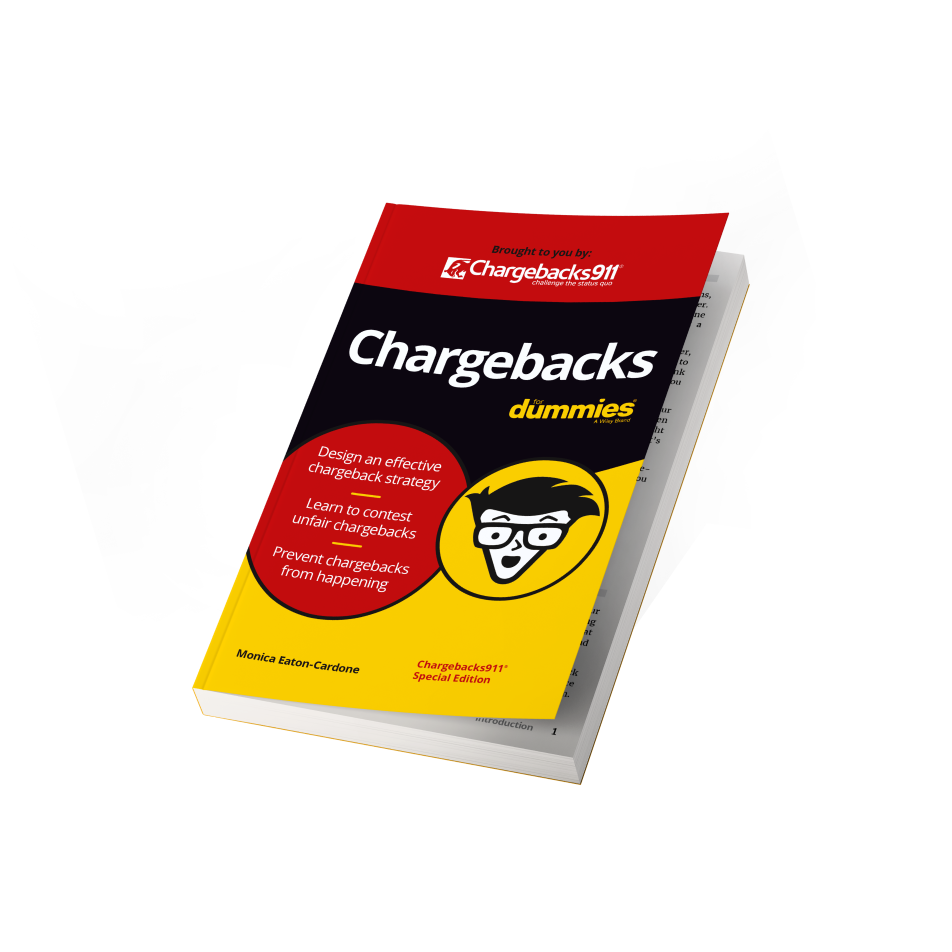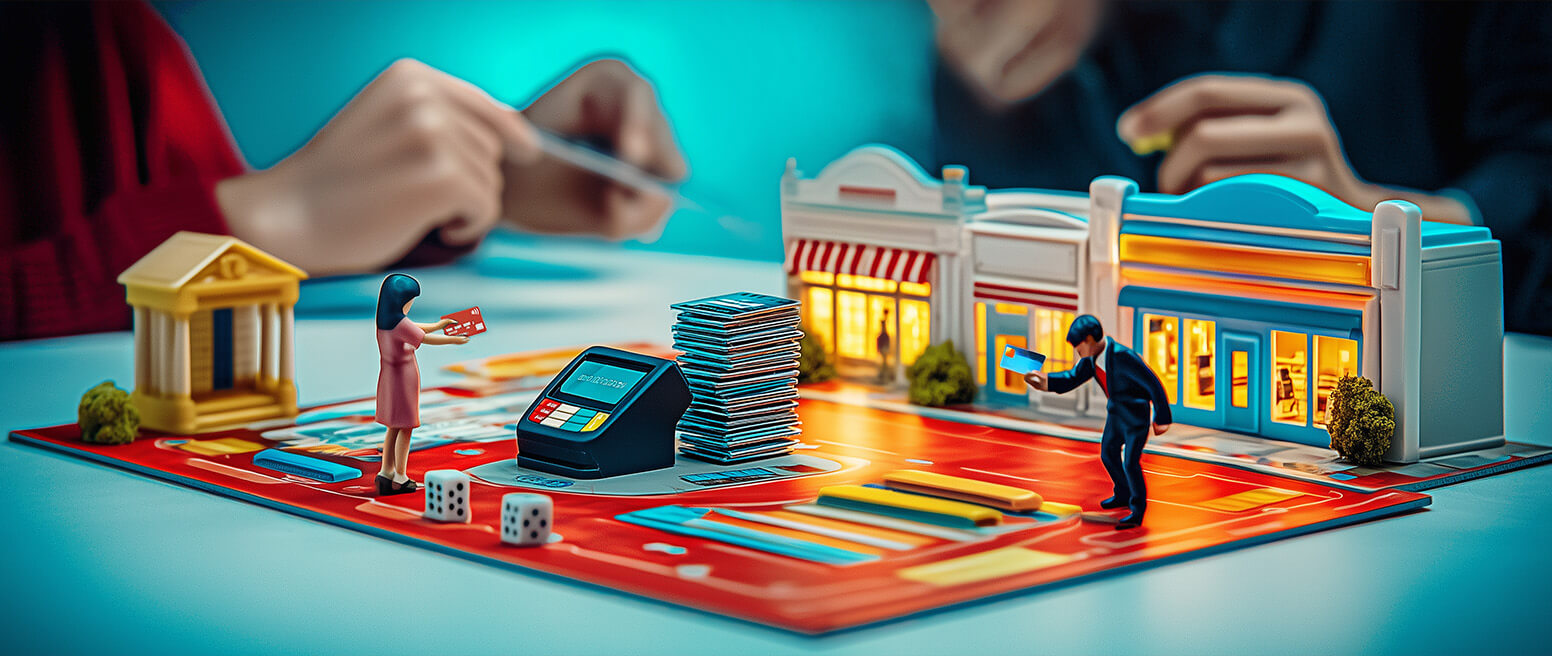What Happens if You File a False Chargeback Claim?
When cardholders fall victim to fraud or abuse, they can turn to the chargeback process to recover their funds. But what happens when consumers start abusing the system by filing false chargeback claims or credit card disputes?
In this article, we break down the dispute process, and discuss the impact of false credit card dispute claims made by cardholders. Most importantly, we’ll answer the question: can you get in trouble for falsely disputing credit card charges?
Recommended reading
- Chargeback Stats: All the Key Dispute Data Points for 2025
- Provisional Credits: Here’s Everything You Need to Know.
- Here are the 7 Valid Reasons to Dispute a Charge
- Monica Eaton Shortlisted for ‘Visionary CEO’ Award!
- A Step-by-Step Guide to the 2025 Chargeback Scheme
- A Step-By-Step Guide to the Chargeback Process in 2025
How the Dispute Process Works
A cardholder disputes a transaction with their issuer, who then investigates the cardholder’s claim and files a chargeback against the merchant. The merchant is given the opportunity to challenge the chargeback in representment, after which the issuer may uphold the chargeback or reverse it in favor of the merchant. If the parties reach a deadlock, the chargeback can be escalated to pre-arbitration or arbitration.
To understand this, let’s cover the basics first.
A “chargeback” happens when a cardholder contacts their bank and disputes a charge appearing on their statement. This could be a case of card fraud, in which a criminal uses the customer’s credit or debit card without authorization. Or, the customer might claim that the merchant made false promises, and that the goods or services provided didn’t live up to the seller’s description. This article explains how you can go about disputing a charge.
The bank will investigate the cardholder’s claim, looking at the evidence at hand. The bank will then either reverse the charge, or deny the cardholder’s request.
Learn more about chargebacksOf course, the merchant has the option to fight back if they believe a customer’s claim is invalid. This happens through a litigation-based process known as representment.
Using the representment process, the merchant gathers evidence and resubmits the transaction to the bank. The issuer then examines this evidence and issues a ruling, either upholding the original transaction or filing a second chargeback.
Learn more about representmentChargebacks serve as an essential consumer protection mechanism. They give cardholders a way to recover their money if they become victims of fraud or deceitful merchant practices. At least, when used as intended.
Unfortunately, the system is subject to abuse. In many cases, the cardholder might not even realize they’ve done anything wrong.
What Constitutes a False Chargeback Claim?
Any chargeback that is not filed in response to one of a select number of valid chargeback reasons — namely unauthorized charges, billing errors, damaged goods, or non-delivery of merchandise — is a false and illegitimate chargeback claim.
Cardholders are entitled to chargebacks in cases of criminal fraud or merchant abuse. So, to put it bluntly, chargeback abuse occurs if a buyer files a chargeback claim that’s not tied to one of those valid reasons.
For example, if a buyer disputes a purchase because they simply don’t like what they paid for, that would be a case of chargeback abuse. The same applies if the buyer didn’t fully understand or comply with the merchant’s terms, but files a chargeback claiming the terms were unfair anyway.
Chargeback abuse is also known as first-party fraud, or “friendly” fraud. This describes any situation in which a cardholder files a false chargeback claim without justification. It could be due to a genuine misunderstanding, or because the cardholder simply felt a chargeback would be easier than requesting a return.
In some cases, a buyer might actually make a purchase, planning to file a chargeback later. The buyer is using the chargeback process to “get something for free.” This also falls under the mantle of friendly fraud.
Learn more about friendly fraudIn the end, it doesn’t really matter whether the buyer filed a false chargeback claim on purpose, or by accident. Either way, the result is the same: the merchant loses revenue and merchandise, plus sees added fees, higher costs, and other long-term threats to the business.
Merchants aren’t the only ones on the hook for friendly fraud, though. Cardholders pay a price for chargeback abuse as well.

Can you Get in Trouble for Disputing a Charge?
Yes. Although criminal penalties are unlikely, cardholders may be blacklisted from transacting with a merchant or have their credit or debit card privileges revoked. In extreme cases, they may even be prosecuted.
Can you go to jail for disputing charges? It’s technically possible, as friendly fraud can be considered a form of wire fraud. However, this only happens in extreme cases. In general terms, it’s practically unheard of for cardholders to end up behind bars for committing friendly fraud.
If the dollar value is high enough, a merchant may take a cardholder to civil court over a dispute. Again, though, these are extreme cases. Buyers rarely face any legal consequences for filing false chargeback claims.
Even if they won't end up behind bars for filing false chargebacks, buyers could still face serious consequences, even with a low-dollar value. They could experience:
None of the above consequences are required by law. The Fair Credit Billing Act of 1974 and other chargeback laws stipulate that consumers need a way to dispute claims. However, the laws mostly leave it up to the banks and card schemes to determine the specifics.
Learn more about chargeback rulesWhether cardholders ultimately face legal consequences is secondary to the fact that chargeback fraud nonetheless constitutes theft, and is therefore illegal.
When Are You Entitled to a Chargeback?
Most importantly, consumers need to understand that chargebacks should never be confused with a refund. If you simply want your money back for an item or service that didn’t meet your expectations, that’s something you should work out with the merchant directly.
Getting the bank involved might seem easier or more convenient. It really isn’t, though.
As we laid out above, buyers could incur some serious consequences for bypassing the merchant to get their money back. So, one has to have a legitimate reason to involve the bank for a chargeback. That may include any of these situations:
Fraud
A buyer discovers an unauthorized charge on their account, which they identify as a case of fraud. Note that family members do not count on the list of unauthorized charges. Any instance of so-called “family fraud” will be considered a false chargeback claim.
Non-Delivery
Orders that were never delivered. Proof will be required here; if the merchant can prove that the item was delivered and the buyer has nothing to refute that claim, they may lose the dispute. We don’t recommend this unless the buyer has proof that an item never arrived, and that the merchant refused to help.
Defective Merchandise
Merchandise that arrives damaged or defective is not your fault and can be disputed if the merchant is unresponsive or hostile. A good rule of thumb for customers is to try the item first, document the damages carefully along with the packaging in which it arrived, and then record any conversations you have with the merchant.
Item Not As Described
If the items or goods purchased do not arrive exactly as described by the merchant, you have the right to dispute the charge if the merchant is unhelpful or unresponsive. Again, the bank will require proof that the item was falsely described before they make a determination.
The Buyer Gets the Wrong Order
If an order arrives, and it isn’t what was ordered at all, then the buyer is entitled to a chargeback. Again, the buyer will need proof that they tried to resolve the situation with the merchant, and that the seller was unavailable or unresponsive.
Additional or Incorrect Charges
If the buyer paid for more than was ordered, or was charged more than the listed price for an item, they are entitled to get their money back. This could be a simple mistake by the seller, but it could also be a case of merchant fraud.
We can’t state this enough: buyers must try to contact the merchant before attempting a chargeback. Most accidents or mistakes can be rectified with a simple call to the merchant.
This is better for both parties involved. The merchant avoids the hassle of a dispute, and the cardholder gets their money back much faster than they would with a chargeback.
With fraud cases, cardholders should contact the bank immediately to prevent additional losses. In almost all other cases, though, the cardholder must talk directly to the merchant before calling the bank.
The System is Unbalanced
Of course, only a small number of consumers complete purchases with the intent of filing a chargeback later. Most are simply confused about when—or if—they’re entitled to dispute transactions. Furthermore, consumers know even less about the consequences of committing friendly fraud.
In a criminal jury trial, the burden of proof falls on the prosecutor: the accuser must establish guilt beyond a reasonable doubt. In a chargeback, however, the burden of proof is on the merchant; the accused, in this context. In other words, because of the way the chargeback process works, merchants are “guilty until proven innocent.”
Here’s the truth: when it comes to expectations placed on cardholders in these situations, the bar is set remarkably low. The entire chargeback process creates an environment that encourages consumers to file false chargeback claims. As a result, friendly fraud is now the number one reason chargebacks get filed, representing roughly 60% of all disputes.
Although we indeed need standardization in the chargeback process, consumers still need to use the chargeback process wisely. Filing false credit card dispute claims means risking some serious consequences.
FAQs
Can you go to jail for false chargebacks?
It’s technically possible to be charged with wire fraud for filing abusive chargebacks. Although chargeback fraud is illegal, it’s unlikely that you’ll be held criminally responsible or face jail time for the crime. You may expose yourself to legal action, however, if the fraud is pervasive or if it involves significant dollar amounts.
Can you sue someone for a false chargeback?
Yes. As a merchant, you can file a civil lawsuit against a chargeback fraudster to recover damages. That said, you’re unlikely to win the lawsuit unless you can show that you can prove that the fraud was egregious. The traditional chargeback process, rather than the court system, may be your best bet for most instances of chargeback fraud.
Do merchants ever win chargeback disputes?
Yes. Merchants win disputes in about 20% to 30% of cases, suggesting that it’s an uphill battle. Recovering revenue is an even rarer feat; according to the 2024 Chargeback Field Report, merchants recover revenue just 18% of the time.
What happens if you lie on a chargeback?
If you lie when filing a chargeback, the merchant you filed your dispute against may challenge your claim through representment. If your issuer subsequently rules in the merchant’s favor, you will be on the hook for the entire transaction. If you frequently file false chargebacks, your issuer may revoke your credit or debit card privileges.
What happens if you dispute a false charge?
If you dispute a false charge that occurred due to merchant error or misconduct, you are exercising your chargeback rights as intended. Your issuer will investigate your claim, give the merchant an opportunity to respond, and decide on the outcome. On the other hand, if you falsely dispute a legitimate transaction, you are committing chargeback fraud and may expose yourself to penalties or sanctions from your issuer.














